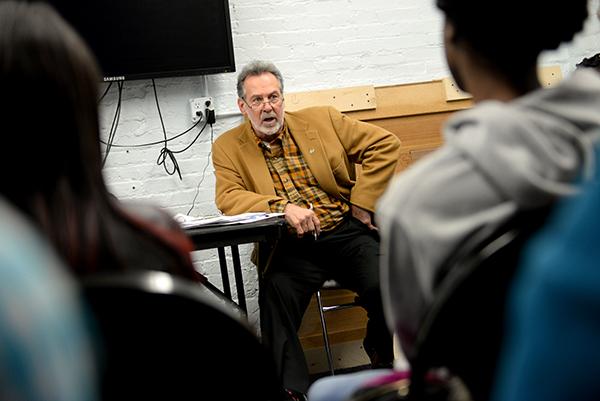A GW administrator is helping tell the story of what he calls “the Black Mecca of America.”
A documentary to be released next year will detail the history of the U Street district, and Bernard Demczuk, the University’s assistant vice president for District relations, will share his knowledge with filmmakers of what made the neighborhood the epicenter of the American black community.
“D.C.’s U Street was the entertainment capital of black America during most of the 20th century,” Demczuk said. “All aspects of black history and culture on U Street including music, dance, businesses, fashion, cuisine, politics and economics, leisure activities, religion and sports are being covered in the film.”
Shellee Haynesworth, the director of the project that will also include short films, photography exhibits and walking tours, said Demczuk has played a pivotal role in preserving the history of U Street by giving walking tours through the neighborhood and acting as the historic adviser for the project.
“He knows the story better than many folks who are from the community, so I think he’s integral,” she said.
Demczuk said the documentary, titled “Black Broadway on U,” will include his lectures and interviews that showcase his expertise in D.C.’s black culture. He teaches an African-American history class at the School Without Walls and works as the historian for Ben’s Chili Bowl, one of the last remaining businesses that witnessed the “black Broadway era,” Haynesworth said.
Many black artists came to D.C. to perform on U Street after the end of the Harlem Renaissance, Haynesworth said, and because the businesses were run by African Americans, it became a hub for music and entertainment in the black community.
The project also focuses on other key figures with ties to the District. Haynesworth said she plans to focus on Howard University as well as Dunbar High School, the first public school in the country for black students.
Haynesworth, a third-generation Washingtonian, said she’s leading the project to preserve the history of the area, which was home to clubs where many famous jazz artists like Duke Ellington performed. The project will also include an online component, where families will be able to upload pictures to share their stories about living in the U Street neighborhood.
“The city is changing, and I think it’s important for the people who are moving into that community to know about the history so they can be more engaged to preserve it,” she said.







